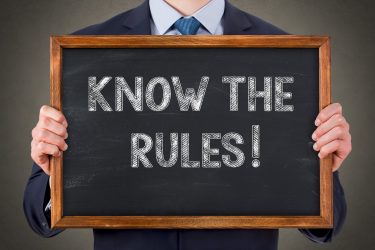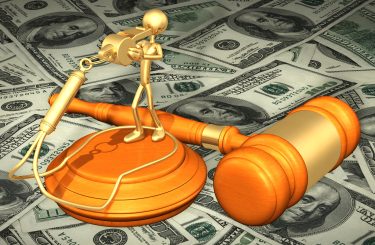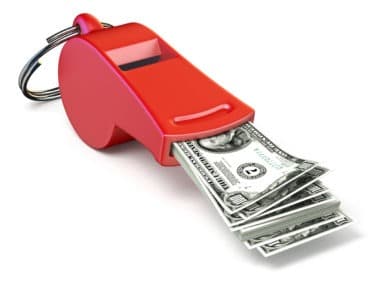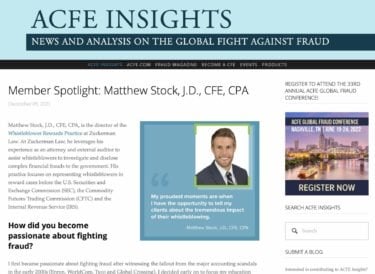SEC Whistleblower Rules to Maximize an Award
 The SEC Whistleblower Program has awarded more than $1.3 billion to whistleblowers since 2012. Our experience successfully navigating the SEC whistleblower process has enabled our firm to obtain multi-million dollar SEC whistleblower awards for our clients.
The SEC Whistleblower Program has awarded more than $1.3 billion to whistleblowers since 2012. Our experience successfully navigating the SEC whistleblower process has enabled our firm to obtain multi-million dollar SEC whistleblower awards for our clients.
The SEC whistleblower rules require the SEC to pay awards to eligible whistleblowers who voluntarily provide the SEC with original information about violations of the federal securities laws that lead to successful enforcement actions that result in monetary sanctions of more than $1 million. Importantly, the SEC whistleblower rules allow individuals to submit information anonymously if represented by an attorney.
Per the SEC whistleblower rules, in exchange for specific and credible tips, the SEC is required to pay monetary awards of 10% to 30% of the total monetary sanctions collected. The largest SEC whistleblower awards to date are $114 million and $50 million.
Prior to submitting a tip, whistleblowers should understand the SEC Whistleblower Program’s rules that govern the percentage of a potential whistleblower award. The SEC whistleblower rules include both positive and negative factors that the Commission considers when determining the appropriate award percentage ranging from 10% to 30% of the monetary sanctions recovered in an enforcement action. Leveraging the SEC whistleblower rules effectively can potentially increase an award by millions of dollars.
Call us today to find out how we can help you obtain an SEC whistleblower award. Contact the Director of our SEC whistleblower practice at [email protected] or call our leading SEC whistleblower lawyers at (202) 930-5901 or (202) 262-8959.
Recently the Association of Certified Fraud Examiners published a profile of SEC whistleblower lawyer Matt Stock’s success working with whistleblowers to fight fraud:
SEC Whistleblower Rules – Positive Factors to Increase an Award
The SEC may increase a whistleblower’s payout based on several factors. Whistleblowers and their counsel can take concrete steps to leverage these factors, both before and after filing a tip with the SEC, to maximize an SEC whistleblower award. The following four positive factors can significantly increase a whistleblower’s award share.
(1) Participation in Internal Compliance Programs
When the SEC promulgated rules implementing the SEC Whistleblower Program, many companies cautioned that the program would undermine internal compliance programs by offering monetary awards to employees who reported externally to the SEC. In response to these concerns, the SEC included in the final rules an incentive to report internally. In particular, a whistleblower can recover a higher award if they report a violation internally (e.g., to a corporate ethics or compliance program) prior to reporting the violation to the SEC.
If a whistleblower initially reports internally, the whistleblower should submit the information to the SEC Office of the Whistleblower within 120 days to ensure that the date of the original internal report is deemed tantamount to simultaneously submitting the information to the SEC. Note, however, that whistleblowers who are integral to a company’s compliance (for example officers, directors and internal auditors) must wait 120 days after reporting internally before they can report to the SEC and be eligible for an award under the program.
Many whistleblowers are reluctant to report internally due to fear of retaliation or a concern that the company might destroy or cover-up evidence of the fraud. And due to a Supreme Court decision limiting protections for internal whistleblowing, a whistleblower will have greater protection by first reporting to the SEC. An experienced SEC whistleblower lawyer can help you assess whether to report internally before reporting to the SEC and can advise you on Sarbanes-Oxley whistleblower protections.
(2) Assistance Provided by the Whistleblower and Their Attorney
The SEC can increase the percentage of an award based on the degree of assistance provided by the whistleblower and if represented by counsel, the assistance provided by their attorney. The SEC will assess whether the whistleblower and their attorney provided ongoing, extensive and timely cooperation in the enforcement action.
An experienced SEC whistleblower attorney who knows how to effectively assist an SEC investigation or enforcement action and navigate the award application process can increase the likelihood of recovering a substantial award.
(3) Law Enforcement Interest
The SEC is more likely to pursue a whistleblower submission where the whistleblower has identified a violation that would promote the SEC’s enforcement priorities. Since the inception of the SEC Whistleblower Program, most of the tips have concerned corporate disclosures and financials, offering fraud, and market manipulation. If a whistleblower’s tip furthers an enforcement priority and results in a successful enforcement action, the SEC can increase the size of the whistleblower’s award.
(4) Significance of the Information Provided by the Whistleblower
Since 2011, the whistleblower office has received over 44,200 whistleblower tips. In order to grab the SEC’s attention as it reviews thousands of tips, whistleblowers should provide specific, credible and complete information regarding the alleged violation. For example, evidence that corporate officers precipitated the fraud will encourage the SEC to open an investigation. In addition, whistleblowers should provide the SEC with a clear roadmap for a successful enforcement action. A whistleblower who comes to the SEC with a solid case supported by strong evidence and a persuasive legal theory is likely to secure a substantial award percentage.
Providing documentary evidence to corroborate a violation will strengthen a whistleblower submission and increase the likelihood that the SEC will open a formal investigation. But whistleblowers should exercise caution and seek advice before gathering evidence. For example, disclosing privileged material can undermine an SEC investigation by forcing the recusal of SEC attorneys or investigators that saw the privileged material.
SEC Whistleblower Rules – Negative Factors that can Decrease an Award
The SEC Whistleblower Program’s rules also authorize the Commission to decrease the percentage of a whistleblower’s award based on negative factors. Whistleblowers and their attorneys should take steps to avoid the SEC significantly reducing a future payout.
(1) Unreasonable Reporting Delay
One of the largest SEC whistleblower awards to date of $83 million could have been even larger. As noted in the SEC’s order determining the award claims, the SEC reduced the total award percentage because two of the whistleblowers “unreasonably delayed reporting the relevant facts to the Commission for an extended period of time.” The order explains that the SEC’s “rules seeks to incentivize individuals who are ‘aware of the relevant facts’ to promptly report ‘possible violation[s] of the federal securities laws.”
Based on a review of SEC orders determining award claims, an unreasonable delay in reporting is a common factor that has reduced many whistleblowers’ awards. This fact underscores why most whistleblowers should report misconduct to the SEC as soon as possible.
(2) Culpability in the Misconduct
The SEC may reduce an award if the whistleblower was culpable or involved in the underlying misconduct, especially where the whistleblower substantially directed, planned or initiated the misconduct. But the SEC also understands that employees with first-hand knowledge of a fraud scheme can offer critical assistance in enabling the SEC to identify the perpetrators and halt the scheme.
As such, the SEC Whistleblower Program’s rules allow participants in misconduct to be eligible for an award in certain circumstances. The former Director of the SEC’s Division of Enforcement highlighted this rule in a recent speech.
(3) Interference With Internal Compliance and Reporting Systems
While the SEC may increase a whistleblower’s award percentage for reporting internally, the Commission can also decrease an award percentage if the whistleblower interferes with the company’s internal compliance or reporting system.
For example, the SEC can decrease a whistleblower’s awards if the whistleblower makes false statements or representations that hinder the company’s efforts to investigate the violation. As company management or the company’s Audit Committee may disclose the findings of an investigation to the SEC or other regulators, a whistleblower should get advice and come prepared to an interview conducted by corporate counsel.
Guide to SEC Whistleblower Rules
For more information about the SEC whistleblower rules, see our Guide to the SEC Whistleblower Program. Click below to hear SEC whistleblower lawyer Matt Stock’s tips for SEC whistleblowers:
SEC Whistleblower Rules Governing SEC Whistleblower Process
Top-Rated SEC Whistleblower Lawyers Leveraging the SEC Whistleblower Rules to Maximize Awards

In matters in which we obtained SEC whistleblower awards for our clients, the public orders announcing the awards note the “significant assistance” provided to SEC staff that enabled the SEC to complete investigations more quickly.
If you have original information that you would like to report to the SEC Office of the Whistleblower, contact the Director of our SEC Whistleblower Practice at [email protected] or call our leading SEC whistleblower lawyers at (202) 930-5901 or (202) 262-8959. All inquiries are confidential.






In conjunction with our courageous clients, our SEC whistleblower attorneys have helped the SEC halt multi-million dollar investment schemes, expose violations at large publicly traded companies, and return funds to defrauded investors.

Under the SEC Whistleblower Reward Program, whistleblowers can submit tips anonymously to the SEC through an attorney and be eligible for an award for exposing any material violation of the federal securities laws, including:
- Accounting fraud;
- Investment fraud;
- Ponzi schemes;
- Foreign bribery and FCPA violations;
- Cryptocurrency fraud;
- Promissory note fraud;
- EB-5 investment fraud;
- Fraudulent securities offerings;
- Improper revenue recognition;
- Inadequate internal controls;
- Deceptive non-GAAP financials;
- Manipulation of a security’s price or volume;
- Insider trading;
- Hedge fund fraud;
- Unregistered broker-dealers;
- Investment adviser fraud;
- Anti-money laundering violations;
- False or misleading statements about a company or investment;
- Violations of auditor independence rules; and
- Misleading or incomplete cybersecurity disclosures.
The SEC has jurisdiction over a wide range of industries and entities – both public and private.
Recently the Association of Certified Fraud Examiners published a profile of SEC whistleblower attorney Matthew Stock’s success working with whistleblowers to fight fraud:
Click below to hear SEC whistleblower attorney Matthew Stock’s tips for SEC whistleblowers:




